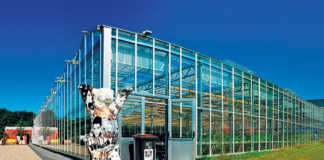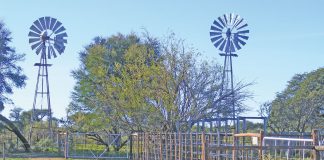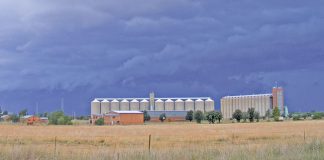Mike Burgess reports on the road they took to producing the province’s first estate wines.
“I just loved wine and couldn’t afford to live in Franschhoek so I decided I will put a vineyard right here and sit in my boma, build a fire and drink a glass of wine as I look over the farm, the lands and the mountains.” So says Ronnie Vehorn, explaining what motivated him to establish the Eastern Cape’s first wine estate, Harrison Hope, on his 400ha farm near Whittlesea. This despite production challenges that include summer rainfall, late frosts, berg winds and hail storms.
The first 700 bottles of Harrison Hope estate wines were produced and bottled in 2009 and included Pinotage, Merlot and Chardonnay wines. These were the first estate wines ever produced in the Eastern Cape – by definition the entire process, from growing the grapes to bottling, took place on Harrison Farm.
The South African Wine Industry Information and Systems (SAWIS) demarcation committee has already visited the farm to inspect the vineyard, taste the wine and certify and register Harrison Hope products as a wine of Origin Eastern Cape – a new category created especially for Harrison Hope. But then again, Ronnie has never made a habit of taking the conventional route. He and wife Janet were brought to Africa from the US by the same restless, pioneering spirit and the energy behind their range of wines.
South Carolina to the Eastern Cape
In the mid 1980s Ronnie was an uneasy United Methodist pastor in Georgetown, South Carolina. “I was successful in running churches but not very happy in my heart,” he recalls. “It was always about politics and arguing about the colour of the curtains and who moves the piano.” Ronnie, then a father of three, knew he needed a new spiritual challenge.
But he wasn’t sure where to find it until an unexpected meeting with a South African evangelist touring the US. “I met a big Dutchman, Bertie Greeff from Cape Town, who was travelling around and doing some preaching and what not,” he recalls. “He’d worked in District Six before they tore it all down and spoke about working in the Transkei.”
Ronnie was so inspired by Bertie’s stories about South Africa that by 1987 he was on a scouting expedition in the country, travelling from Cape Town via the then-Transkei to Venda. The trip convinced him to relocate to South Africa to preach among the Xhosa. “I think we can have fun in South Africa and we can make a difference,” he told his wife on his return to the US. “The United Methodist Church said fine, if you want to go to Africa – you go,” he recalls.
“Don’t tell anyone you know us and we won’t tell anyone we know you. “I lost my credentials, benefits, wages, support, insurance – everything.“We came to Queenstown on 1 July 1988 with 12 suitcases and got off the train at 6am. We asked the guy on the railway to get us a taxi and he said there were no taxis in this town – and there we stood.”
Eventually the family were given a lift by a sympathetic railway employee to a local hotel – their first of many temporary homes. Janet recalls, “The first five or six years were rough. Nobody trusted anyone. Blacks didn’t trust us, nor did whites – English- or Afrikaans-speaking,” says Janet. “But we always believed we were meant to be here and we just persevered.” That perseverance eventually brought the family to Harrison Farm in 1994.
It became home and a perfect base from which to continue preaching into the Ciskei. Soon Ronnie began to notice the farm’s agricultural potential.
Deciding to establish vineyards
When the Vehorns arrived on Harrison Farm it was run down, but soon they’d converted the old milking parlour into a cottage, installed a pump on the Klipplaat River and began producing lucerne and maize between their evangelical commitments. But Ronnie wanted to produce wine. By 2000 he was devouring any literature he could find on the topic, including textbooks from the University of Stellenbosch.
He also visited friends’ wine farm in Franschhoek, where he took careful note of how the vineyards were constructed and managed. “I’d walk around in their vineyards with my tape measure, my notebook and my camera, writing everything down, and I came and did it here exactly the same way,” he says.
“In 2006 we planted the vineyard and it took off – it grew beautifully.”By Christmas 2006, Ronnie was looking at his first vineyard of about 0,25ha with three rows of Chardonnay, three of Pinotage and three of Merlot vines. He called it the Genesis vineyard. But soon unique problems began to emerge – like duikers which took a keen interest in the green vine shoots.
“Goodness, gracious – the first and second year, they just hammered the bottom of the vines,” he says. “Every time you get a little green shoot – doof, they’d eat it.” But once he realised what was causing the damage he quickly erected netting fences. In 2009, the first ton of grapes was harvested from the Genesis vineyard. Today there are 7 000 vines on Harrison Farm. Ronnie says that in five to seven years they’ll be able to produce 5t/ha to 8t/ha of grapes, with the potential to produce 12 000 bottles of wine.
Winemaking in the Eastern Cape
Ronnie believes the Eastern Cape produces a lot of winemaking talent. For example, last year’s Young Winemaker of the Year, Clayton Reabow, based at Môreson in Franschhoek, was born and bred in nearby King William’s Town. Another youngster, Peter Turk from Kidd’s Beach, trained in winemaking in Stellenbosch. Both visited Harrison Farm on many occasions to offer valuable advice, says Ronnie.Although Harrison Farm’s main focus is on producing quality estate wines, Ronnie has also bought in grapes from Franschhoek.
“On my first trip from the Western Cape back to Whittlesea I drove all night, and got here by four in the morning all by myself. It was a nightmare” he recalls. “So I called that pinotage the Night Opus – the night work.” He has also bought in unlabelled bottles from cellars in the Western Cape and labelled them as the Harrison Hope Pilgrim Road Bin. Ronnie has set up a temporary cellar in the 1860 settler cottage on the farm.
Currently, he has 2 000 bottles of Harrison Hope-labelled wine, which can’t be sold as he’s struggling to get a liquor licence. But one gets the impression that despite the frustrations, Ronnie will overcome this challenge as he has all the others in his life.













